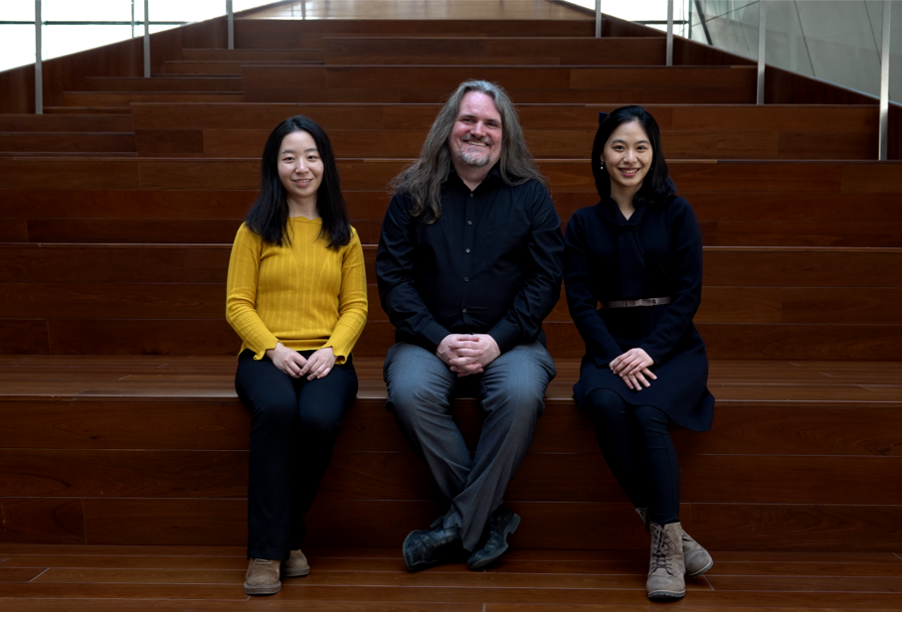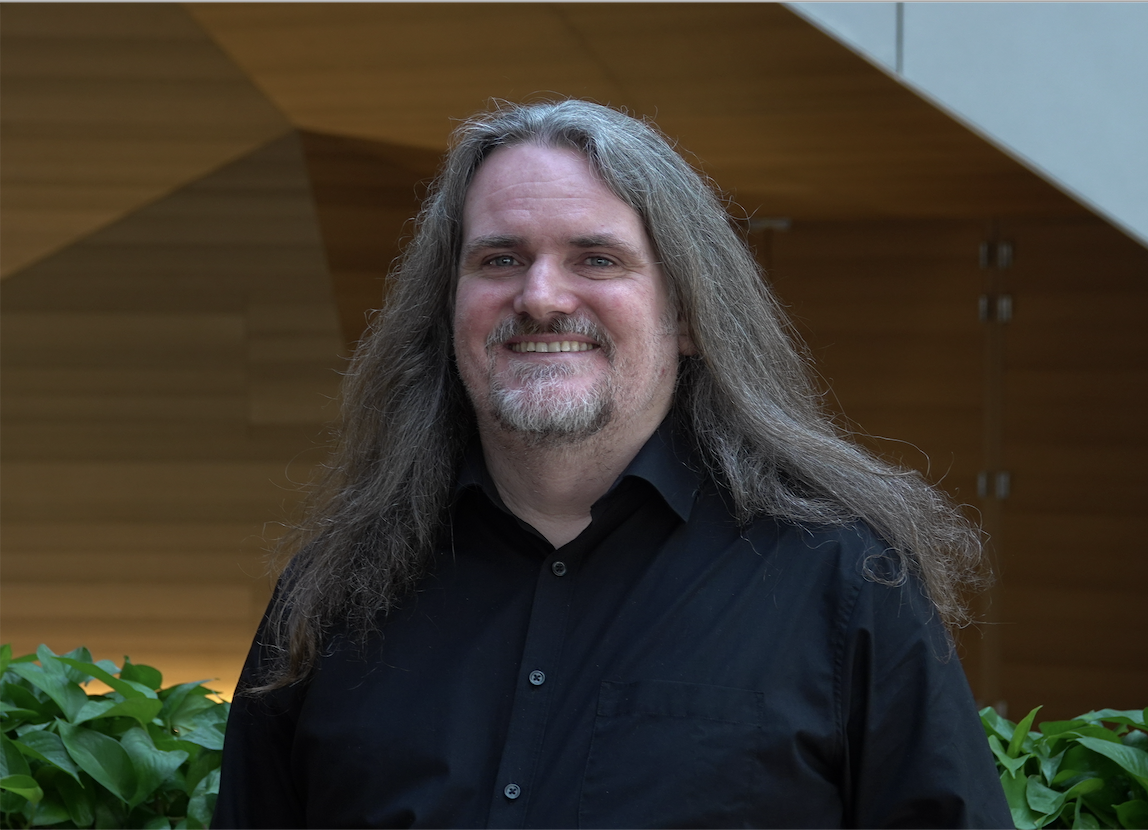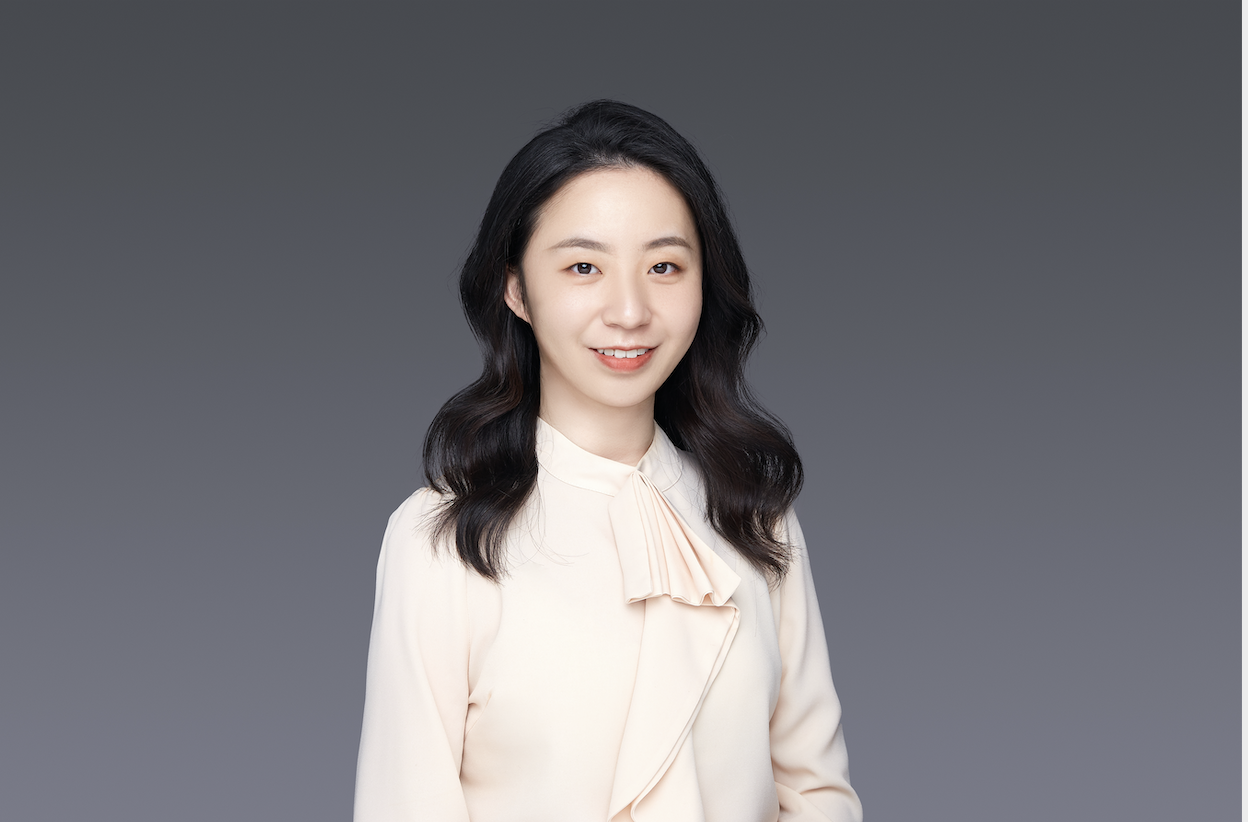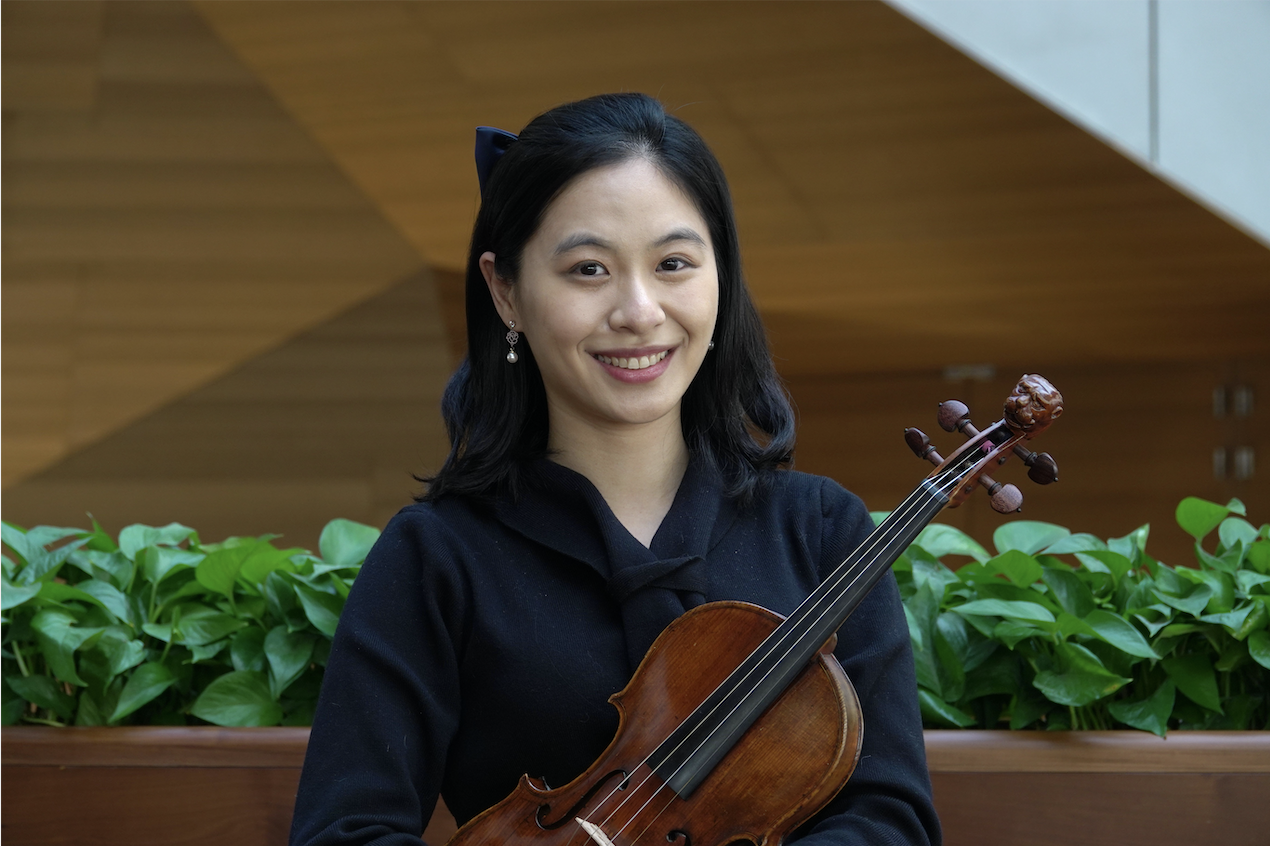In this edition, we spotlight Tianjin Juilliard’s international team of English language faculty members who play an important role in helping our students learn and refine their English skills for international communication relating to music cultures. “Helping the student develop and express their own sense of cultural and creative identity as an international artist is at the center of our language learning approach,” said Bob Burke, who is head of the English team teaching students at the graduate and Pre-College levels.
Meet Bob Burke, Penny Cui, and Anita Lee below – like many of Tianjin Juilliard’s wonderful staff and faculty, their rich experiences and backgrounds are not only very diverse but also steeped in a deep understanding of music and its connection to languages.
Bob Burke, Director of English Language Studies
Originally from New Forest in the UK, Bob Burke is an English language specialist, music lecturer, musician and songwriter. Before moving to Tianjin, he lived in Worthing, a town on the south coast of England, near Brighton. It was his love of songwriting that guided Burke’s interest in language, and songwriting in international contexts that took him into English teaching. He has a master’s in musicology from the University of Southampton and a master’s in English language teaching from University of Sussex.
What came first to you – music or language?
As a child, I suppose I grew up in a very musical family. My parents always ran folk clubs, and they would take us to folk festivals every summer. I started playing at the age of 7 and music has been a crucial part of my identity since I was about 10. I studied piano, composition and musicology at university in the UK, and went on to be a music lecturer, specializing in songwriting.
What was it like living in Worthing?
We had an 1860s apartment on the beach, and I was pretty active in the music community there. I still have a lot of friends there and I recently recorded a song for a ‘48-hour album’ project, where all the participants had to write and record a song within two days. As I couldn’t be in Worthing, I wrote a song about Worthing, especially referencing a friend of ours, Gary Penalver, who is very ill at the moment. He has been a real inspiration to the whole music community there.
Are there any parallels between the learning processes for English and music?
They are both vessels for communication – for meaning and for emotion – so the most important thing is that you believe in what you are communicating and feel it is worth the listeners’ attention! Also, in language teaching over the last few decades, there has been an increased emphasis on ‘acquiring’ the language in real world situations, rather than just learning ‘the rules’. My music teaching always emphasized personal development, with a lot of improvisation and composition, so I think there have been very strong parallels in my approach to teaching English and music.
What’s unique about the English for Musical Purposes curriculum?
The English for Musical Purposes curriculum at Tianjin Juilliard Pre-College is unique because, in addition to focusing on English for music study, it is also being taught in an international community which is not a native English-speaking environment. The curriculum develops language for professional musical practice and broader music appreciation, so students acquire the language skills to communicate with professionals and music listeners alike.
As a recording and touring artist, what is the one musical project (in recent years) that you are most proud of?
There are so many musical projects that it’s hard to pick out one. After years of supporting other people’s careers (as a producer and bandleader), the opportunity to tour solo in 2019, performing my own songs and telling the stories behind them, was a recent highlight. I also produced a suite of audio-visual poems, ‘Like Breathing’, with Gabi (my wife), for the Worthing Film Festival (UK) in 2019. She is an actress and filmmaker, and it was really lovely to work together. We have some things in the pipeline for our time in China, so watch this space!
What are you currently listening to?
I am currently listening to the songs which have been selected by some Tianjin Juilliard staff for the ‘Bandaoke’ at our Lunar New Year party! I will be playing with my colleagues Rob Ross and Ray Zhou, accompanying some of the other staff. It has been a great opportunity to learn some Chinese songs and to get to know some of the staff better.
Penny Cui, English Language Faculty
Born in Wuxi, China, Penny Cui is a language specialist and a flutist with broad experience of language teaching and music performance in China and the USA. She is also an award-winning musician. She served as principal flutist of Nanjing Xiaozhuang University Orchestra and was a member of University of Florida Flute Ensemble. Growing up as an EFL (English as a foreign language) student with a western music learning background propelled her to experience and explore different cultures. Cui decided to pursue her career as a language specialist to help more students explore a bigger world by learning a second language. Cui holds a bachelor’s in English education from Nanjing Xiaozhuang University, and a master’s in curriculum and instruction from University of Florida.
At what age did you pick up the flute and what was your most memorable performance in recent years?
I started learning the flute at 11 years old. Last year, right before the virus outbreak, I performed at a concert with my wonderful musician colleague Molly He to celebrate Lunar New Year with many local kids in the beautiful Tianjin Binhai Library. That was my first concert after moving to Tianjin, and definitely the most memorable one in recent years.
Do you have any other hidden talents?
Beyond playing the flute, I also enjoy playing the piano. Recently, I started learning the morin khuur, an interesting Mongolian string instrument.
How can music students benefit from refining their English skills?
Both language and music are bridges that can connect and help share culture. This cross-cultural learning experience can help music students thrive in their music learning, communicate with friends with different cultural backgrounds, and more importantly, think in different ways and become more open to the multi-cultural world.
How do you make English learning interesting and engaging for students with different language skills?
I look for reading and listening materials about music suitable for different age groups and language levels. I also design some interesting projects and mini researches closely related to students’ music learning to make sure every student can have something unique to share in class. My students really enjoy using music as a supporting tool in their second language learning.
What are some of your favorite things to do in Tianjin?
I love indulging in local Tianjin food. Jianbing Guozi (Chinese crepe) and Guobacai (fried pancake) are my favorite! They are traditional Tianjin breakfast snacks made from egg, green bean, and millet flour. I also enjoy freediving in the Tianjin Olympic Diving Hall and horseback riding in Dongli.
What do you like best about working at Tianjin Juilliard?
What I like best is how people with different talents and cultural backgrounds work together towards the same goal. I have full support from my wonderful colleagues.
Anita Lee, English Language Faculty
Anita Lee is a violinist, language specialist, and international educator who taught both music and language acquisition in many countries. She has lived in 10 different cities throughout her life. Her education research focuses on providing underserved children with quality and sustainable access to music learning and performance opportunities. She was part of the Silkroad team in the U.S. where she worked towards developing the Arts and Passion-Driven Learning project for arts educators in the Greater Boston area. Lee holds bachelor’s and master’s degrees from the University of British Columbia in Canada, specializing in orchestral performance (violin), linguistics, and education. She completed her second master’s degree in education at Harvard University.
What cities have you lived in?
Vancouver, Taichung, Taipei, Lund, Malmö, Kyoto, Tokyo, Cambridge in Massachusetts, Changchun, and now, Tianjin.
How do you balance your teaching and musical endeavors?
Both teaching and performing are the essential part of my life. I usually spend more energy on teaching during the school year and focus on the performances during my summer vacation while traveling in different countries.
How do music students usually prepare for your class?
I assign related readings prior to the class, but most of the time, I want students to be prepared to have meaningful and in-depth discussion during class. Recently, our Pre-College piano student, Xixi Hu was given a shout-out on an English learning YouTube channel that my friend in Vancouver runs. Xixi wrote a report based on one of these videos and I shared it with my friend who was really impressed by this young learner. It made my day knowing that he puts in a lot of effort improving his English skills even outside the classroom. Students’ participation and engagement is something I value a lot in my teaching.
What is one of the most interesting aspects or area of focus for the English for Music Purposes class?
The interesting part about this English for Music Purposes course is that it is not completely a musical knowledge class, but it is also not completely a language-learning class either. We focus on helping the young professional musicians from around the world to learn how to communicate effectively while working in an international setting with international professionals.
Have you discovered any hidden gems near the campus?
I recently discovered this new supermarket in walking distance from the campus called 7Fresh. It has a lot of fresh products and especially the Japanese yogurt and milk which I absolutely miss from my time living in Japan.
What is your favorite food since you settled in China?
Baozi (steamed buns) and malatang (spicy hot soup with tingly Sichuan pepper)!
What has been the most surprising thing about your job?
Getting to meet amazing and talented people from around the world every day while walking around on campus!



